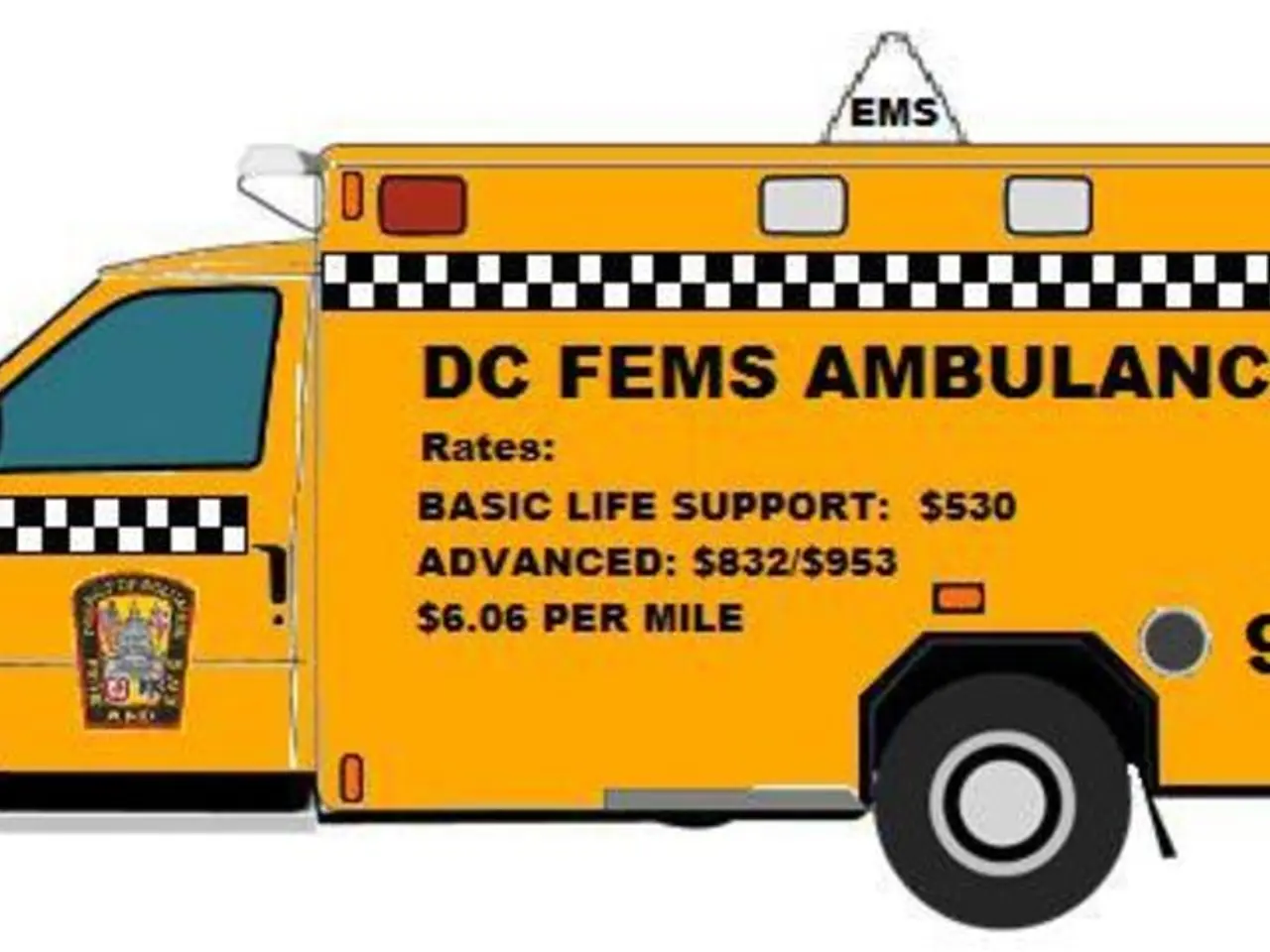Inadequacy in Emergency Medical Services within Bremen: Resulting in Unnecessarily Agonizing Deaths
In Bremen, a tragic incident has sparked a conversation about the management of palliative care in nursing homes. Mrs. Meyer, a resident of a nursing home in the city, spent her last night in severe pain, a situation that could have been prevented.
At 96 years old, Mrs. Meyer, who had been suffering from age-related dementia, had a rich life. She was known for her love of music, particularly the accordion, which she played since she was a child and brought joy to many. However, her final days were marred by pain throughout her body and her inability to communicate where it hurts.
On Saturday night, Mrs. Meyer required urgent pain relief, but faced a challenge due to the out-of-hours service times at nursing homes. The medical emergency service, which can be contacted on 116117, coordinated on-call doctors. However, the doctor on duty did not have the corresponding medication or a BtM prescription.
The medical emergency service in Bremen is operated by the Association of Statutory Health Insurance Physicians. It is responsible for visiting nursing homes and other care facilities outside of their treating general practitioners' usual practice hours.
The strict control on storage and dispensing of opioids in nursing homes stems from safety, legal, and regulatory concerns. Controlled substances like morphine patches are generally not stored as emergency prophylaxis due to the risks of serious adverse effects, legal and regulatory controls, and disposal and inventory requirements.
To ensure immediate access to such medications during emergencies, potential solutions include establishing emergency medication protocols, rapid pharmacy delivery systems or on-call palliative care teams, delegated prescribing and administration authority for trained staff, using alternative non-controlled rescue medications, and collaborating with local healthcare services.
The goal is to prevent delays in pain or symptom relief while minimizing risks associated with stocking and managing controlled substances on-site. It's crucial to balance the need for safe, secure control of potent opioids with the clinical necessity of timely symptom management for palliative care patients during emergencies.
It's worth noting that the doctors on duty may not be authorized to prescribe morphine patches or other medications subject to the Narcotics Act (BtM). The potential existence of locked storage cabinets for BtM medications as emergency prophylaxis in nursing homes is not mentioned.
Mrs. Meyer's relatives believe that there was no quality of life left for her, and her last breath was a release. Her story serves as a reminder of the need for improved palliative care management in nursing homes, ensuring that patients like Mrs. Meyer can receive the care they need, when they need it.








